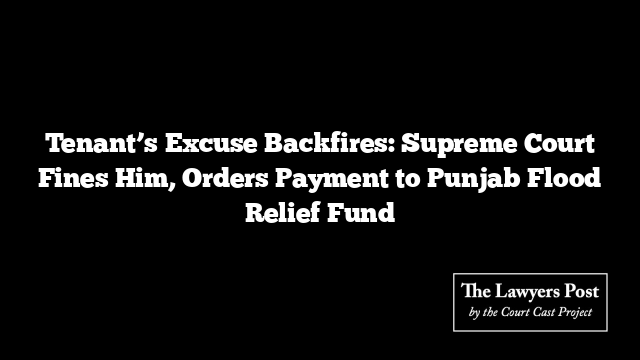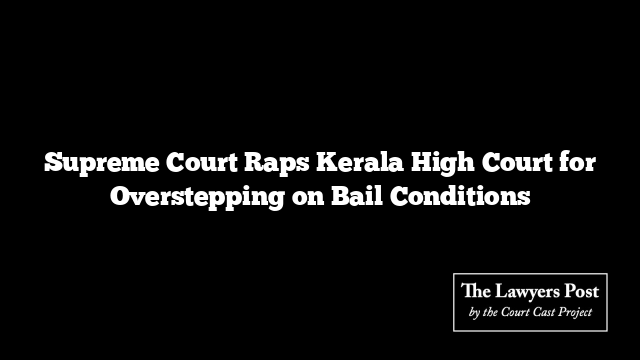The Supreme Court had little patience for a tenant who tried to wriggle out of his own promise to deposit rent arrears. Claiming that his lawyer had made the commitment without instructions, the man attempted to distance himself from the undertaking recorded in court.
A bench of Justices Aravind Kumar and NV Anjaria was unconvinced. The judges reminded him that the court’s record carries weight and cannot be dismissed at convenience—especially since the High Court had noted he was personally present and had directed his lawyer to make the statement.
Finding the tenant’s conduct evasive and damaging to the sanctity of proceedings, the Court dismissed his petition and slapped him with a cost of ₹10,000. The sum will not go into state coffers but to a higher cause—the Punjab Chief Minister’s Flood Relief Fund.
In sharp words, the bench observed that shifting blame onto advocates after giving clear instructions in open court cannot be tolerated:
“Such conduct should not only be deprecated but curbed with an iron hand, else the stream of justice risks being polluted.”
The case arose out of eviction proceedings where the tenant had failed to deposit admitted arrears under Order 15 Rule 5 of the Civil Procedure Code. His defence was struck off by the High Court, a decision the Supreme Court saw no reason to disturb.
With this, the tenant not only lost his petition but also earned a rebuke—and an order to aid flood relief in Punjab.





